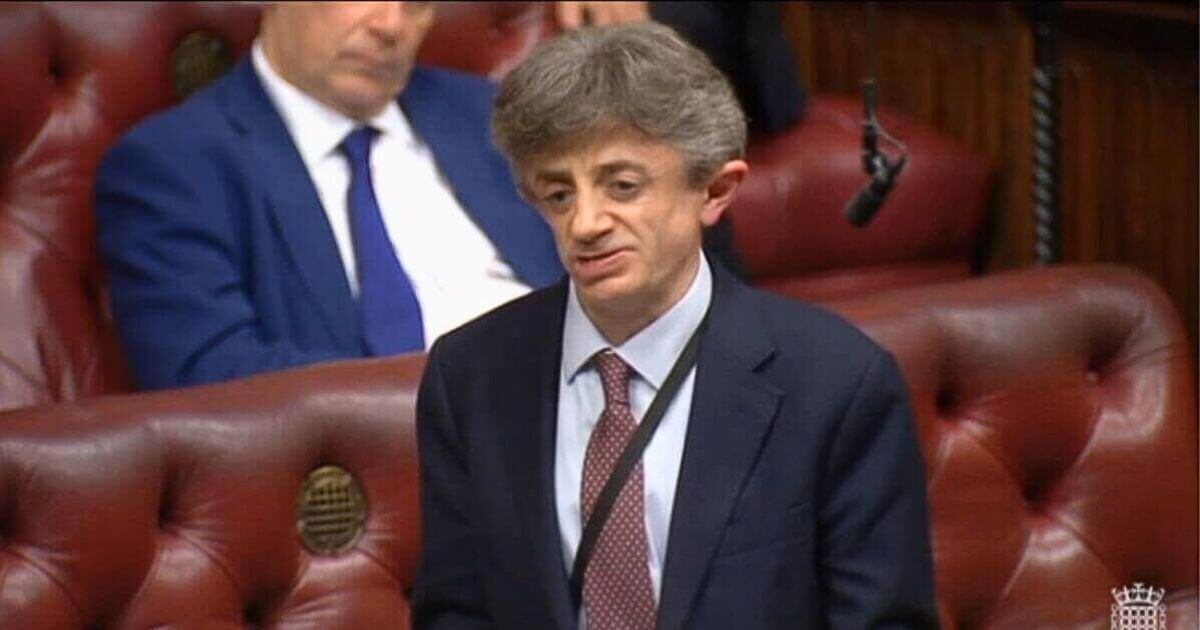After the assisted suicide Bill narrowly passed Third Reading earlier this month, a peer with a disability has said that, if it were legal, he would have felt “under real pressure” to opt for assisted suicide when he was in intensive care.
On Friday 20 June, MPs voted by 314 to 291 in favour of the Terminally Ill Adults (End of Life) Bill at Third Reading, amidst growing cross-party concern about the risks the Bill poses to vulnerable people. The Bill is expected to receive its Second Reading in the House of Lords later this year.
However, Lord Kevin Shinkwin, who himself has a disability, voiced his concern that Kim Leadbeater’s Bill “would put a price on my head”.
“I am a disabled person”, he said. “I cost the NHS, over the course of my lifetime, probably several million pounds to keep me alive”.
“This Bill would put a price on my head – on the head of so many disabled people”.
When asked if he feared he would not be alive today if the assisted suicide law were in force, Lord Shinkwin said “I think you have hit the nail on the head”.
“Absolutely. I was in intensive care a few months ago, and had a doctor come over to me when I was extremely vulnerable and said, ‘Have you considered assisted dying?’, I would have felt under real pressure to do that”.
Speaking to the BBC following the passage of the Bill, Lord Shinkwin said he believed the Bill required “forensic scrutiny”.
“The margin [at Third Reading] was so close that many MPs would appreciate the opportunity to look at this again in respect of safeguards as they relate to those who feel vulnerable, whether that’s disabled people or older people”.
While the Bill passed Second Reading with a majority of 55, this margin shrank to just 23 for Third Reading as a number of MPs who previously voted in favour of the Bill voted against it or abstained. Had an additional 12 MPs moved from supporting the Bill to opposing it at Third Reading, the Bill would have been defeated.
The Bill leaves the Commons lacking a majority, with fewer than half of all MPs voting for it at its final stage.
The Bill now faces an uphill battle to reach Royal Assent, with campaigners confident that it can be overturned given its continued loss of support.
People with disabilities opposed to a change in the law on assisted suicide
Lord Shinkwin is not the only public figure with a disability who is opposed to the assisted suicide Bill. Former Paralympian, Baroness Tanni Grey-Thompson, has warned that if assisted suicide becomes legal, it will “fundamentally” change the relationship between people with disabilities and society.
Before Third Reading, the Baroness said assisted suicide “fundamentally changes our relationship with society. Every disabled person who writes to me – and they do write quite a lot – is absolutely terrified about what this means for them”.
Similarly, actress and activist Liz Carr, who described the prospect of legalising assisted suicide in the UK as “terrifying” in her BBC documentary Better Off Dead?, also shared her concerns around coercion under the Leadbeater Bill, specifically the fact that doctors can raise assisted suicide with terminally ill patients. Carr said “When you are unwell, you go to the doctor, you go to the expert, and as confident that we like to think we are, as an all-encompassing, in-control, autonomous being, when a doctor tells you something might be a solution, you listen to them”.
She added “That is an abuse of power, and I believe that is a coercion”.
“The worst is that we choose it for ourselves, because there is no other option”.
No major disability advocate groups in the UK – including Disability Rights UK, Scope and Not Dead Yet – support a change in the law to introduce assisted suicide.
Spokesperson for Right To Life UK, Catherine Robinson, said “Many leading disability advocates have consistently warned of the dangers of making assisted suicide legal. Sadly, their concerns have mostly been ignored. Lord Shinkwin will no doubt prove to be an effective advocate for people with disabilities. Hopefully, the scrutiny that he and the other Lords bring to bear upon this dangerous Bill will see the entire thing put to rest”.












